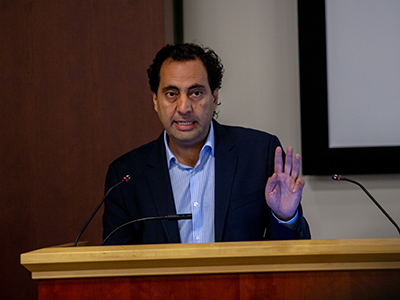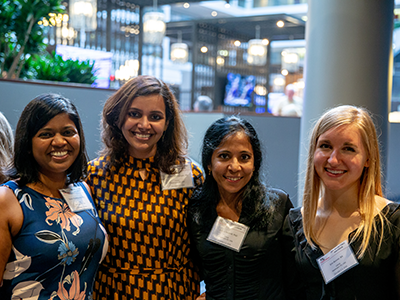Meeting of the Minds: Children’s National Hosts First DIPG Round Table Discussion

Over 40 experts involved in the study and treatment of diffuse intrinsic pontine gliomas (DIPG) convened at the inaugural DIPG Round Table Discussion at Children’s National Health System Sept. 30-Oct. 2.
Spearheaded by Javad Nazarian, Ph.D., Scientific Director of the Children’s National Brain Tumor Institute, the focused DIPG Round Table Discussion brought investigators, neurosurgeons and clinicians from North America, Europe and Australia to Children’s National in Washington, D.C., to engage in dialogue and learn about the changing landscape of DIPG tumor biology and therapeutics. Attendees discussed the recent discoveries in DIPG research, precision medicine, preclinical modeling, immunotherapy, data sharing and the design of next generation clinical trials.

Families affected by DIPG also had an opportunity to participate in day 2 of the event. Many voiced the necessity of data sharing to ensure progress in the field. Dr. Nazarian seconded that point of view: “It is critical to get raw data and have it harmonized and integrated so that the end users (researchers) can utilize and do cross-data analysis…We need to break down the silos.” The highlight of the data sharing session was the Open DIPG Initiative that is spearheaded by Dr. Nazarian and the Children’s Brian Tumor Network(CBTN).
As recent technological and molecular advances in DIPG biology have pushed the field forward, focus groups have become essential to share data, ideas and resources with the overarching goal of expediting effective treatments for children diagnosed with DIPG. An extremely aggressive form of pediatric brain cancer, DIPG accounts for roughly 10 to 15 percent of all brain tumors in children. Between 300 and 400 children in the United States are diagnosed with DIPG each year, but the 5-year survival for the brain tumor is less than 5 percent, a strikingly low number in comparison with other types of childhood cancer. DIPG research and clinical initiatives have changed in the past years mainly due to the generous support of families for basic research. The DIPG Open Table meeting was designed to coalesce a team of experts to expedite the first crack at curing this devastating childhood cancer.
This article was originally featured as part of Children’s National Health System’s Innovation District
